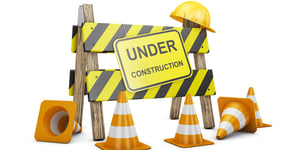 For many contractors, talking about Contractor Insurance is probably the equivalent of a root canal, but it doesn’t have to be that way. Finding an insurance agent who specializes in contractor’s insurance – like the American Insuring Group – takes a lot of the guesswork out of purchasing insurance.
For many contractors, talking about Contractor Insurance is probably the equivalent of a root canal, but it doesn’t have to be that way. Finding an insurance agent who specializes in contractor’s insurance – like the American Insuring Group – takes a lot of the guesswork out of purchasing insurance.
However, it’s always wise to have a basic understanding, so you know what questions to ask and understand what your agent is recommending. Here is what you need to know about Contractor Insurance:
Who Needs Contractor Insurance?
Obviously, contractors need contractor insurance. That includes general, concrete, excavation, masonry, sheet metal, and paving contractors. But Contractor Insurance goes beyond protecting contractors.
Here is a list of occupations/businesses that can benefit from Contractor Insurance:
- Appliance Repair Technicians
- Carpenters
- Debris removal
- Electricians
- Handymen
- Interior construction
- Locksmiths
- Painters
- Plumbers
- Property preservation
- Roofers
- Snow and ice removal
- Stucco and plastering
What Type of Insurance do Contractors Need?
Many factors go into the type of insurance policies you need, including whether or not you have employees and what outside parties you may be involved with (i.e., lenders, municipalities, etc.) require.
Here are the most common types of Contractors Insurance that help protect your business from injuries (employees, vendors, etc.), damage, lawsuits, and more.
Commercial General Liability (CGL)
Every contractor should have CGL because the construction industry comes with many risks. CGL covers basic construction risks, such as lawsuits against your company, along with third-party injuries (visitors to your worksite) and property damage.
For example, if a visitor trips over a wire or slips and falls on a wet surface at your place of business or a worksite, you could be blamed for the injury. CGL typically covers attorney fees, judgments against your business, settlements, medical bills, and funeral expenses.
Another example where CGL can come in handy is f your ladder falls on a customer’s TV and damages it. CGL can help pay for the cost to repair or replace the TV. It can also help cover costs if that customer files a lawsuit against you.
Commercial Automobile Insurance
If you or an employee is driving a company-owned vehicle and is in an accident or causes damage, commercial auto insurance can help cover the cost of property damage, medical bills, lawsuits, and other expenses that can result from an accident.
If you drive a construction vehicle, transport tools or equipment, or have employees run errands for you, you should have Commercial Auto Insurance
Builder’s Risk Insurance
Builder’s Risk Insurance (Aka Course of Construction Insurance) can pay for damage resulting from fire, vandalism, or theft of tools, materials, and property while a structure is under construction.
Commercial Property Insurance
Commercial Property Insurance helps pay for repairs or replacement of your building, along with furniture, supplies, etc. if it is lost, stolen, or damaged.
Inland Marine Insurance
Commercial Property Insurance does not protect your property if it is not at the location listed on the policy. This is where Inland Marine Insurance comes in. It covers products, tools, and equipment while in transit or stored off-site (like a job site).
Workers’ Compensation (WC)
In Pennsylvania, most employers are required to carry Workers’ Compensation Insurance for their employees. If an employee is injured while working, WC can help pay for medical costs and lost wages.
Providing WC insurance to your employees also helps protect you against an injured employee suing your company. In most cases, injured employees are prohibited from suing their employers if WC is provided.
Professional Liability Insurance
Professional Liability Insurance (A.k.a., Errors and Omissions Insurance) covers legal expenses if you are sued for things like unsatisfactory, late, or incomplete work.
👉 Contact Us to Save on Contractors Insurance!
The cost of contractor’s insurance can vary significantly depending on your coverage and your deductible. Other factors that determine the cost of your premiums include what services you provide, your revenue, your location, and the number of employees.
- You may lower costs by bundling liability coverages into a package called a Business Owner’s Policy (BOP).
- You may lower costs by creating a safer work environment that results in fewer injuries and fewer claims.
- You may lower costs by working with an independent agent – like those at American Insuring Group – who can compare the cost of your coverage with several companies to ensure you’re paying the lowest premiums for the coverage.
Have more questions about saving on Contractors Insurance costs? The independent agents at American Insuring Group specialize in Contractors Insurance and can help you get the best price on the coverage you need, whether you're in Philadelphia, Pittsburgh, Erie, Berks County, or anywhere in PA or surrounding states.
Give us a call today at (800) 947-1270 or (610) 775-3848 or connect with us online!



 When it comes to
When it comes to  If you get hired as a subcontractor, don’t assume that the general contractor’s Contractors Insurance covers you. As a subcontractor, you are NOT considered an employee of that contractor, and
If you get hired as a subcontractor, don’t assume that the general contractor’s Contractors Insurance covers you. As a subcontractor, you are NOT considered an employee of that contractor, and  As the
As the  As a restaurant owner, your number one priority should be ensuring the safety of the food you serve. Beyond the human element of food safety, foodborne illness can result in negative publicity, huge fines, possible jail time, lawsuits, and higher
As a restaurant owner, your number one priority should be ensuring the safety of the food you serve. Beyond the human element of food safety, foodborne illness can result in negative publicity, huge fines, possible jail time, lawsuits, and higher 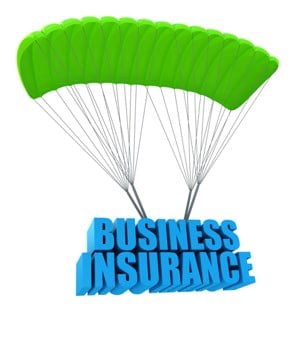 Every business – no matter how big or how small – faces liability, but do you need general liability insurance? Regardless of how careful you are, accidents can (and do) happen causing damage to property and/or injury to employees, customers, vendors, etc.
Every business – no matter how big or how small – faces liability, but do you need general liability insurance? Regardless of how careful you are, accidents can (and do) happen causing damage to property and/or injury to employees, customers, vendors, etc. 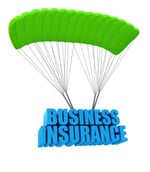 What type of liability insurance and how much coverage you need to protect your business is very unique. But you don't have to go it alone!
What type of liability insurance and how much coverage you need to protect your business is very unique. But you don't have to go it alone! Whether you’re the owner of a one-person home-based handcrafted jewelry business or a large manufacturing plant with 300 employees, you face risk every day. You could lose your entire inventory to a fire, cause an injury while driving to a client meeting, or face a lawsuit for any number of reasons.
Whether you’re the owner of a one-person home-based handcrafted jewelry business or a large manufacturing plant with 300 employees, you face risk every day. You could lose your entire inventory to a fire, cause an injury while driving to a client meeting, or face a lawsuit for any number of reasons.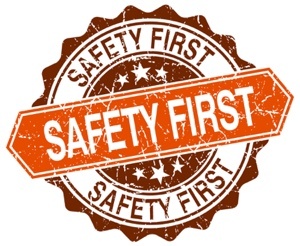 We talk a lot about safety on this blog, but the truth is that reducing and preventing the number of injuries in the workplace, is one of the best ways to
We talk a lot about safety on this blog, but the truth is that reducing and preventing the number of injuries in the workplace, is one of the best ways to The construction industry is booming – both new construction and remodeling - and it looks as if that trend will continue. Construction has a 4.5% projected growth rate over the next five years.
The construction industry is booming – both new construction and remodeling - and it looks as if that trend will continue. Construction has a 4.5% projected growth rate over the next five years.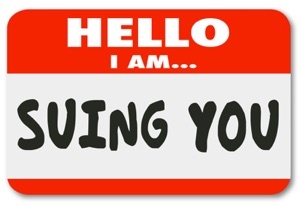 We live in a litigious society, and no matter how careful you are or how small your business is, you may find yourself at the wrong end of a lawsuit. Every year more than 100 million lawsuits are filed in the U.S. every year, according to
We live in a litigious society, and no matter how careful you are or how small your business is, you may find yourself at the wrong end of a lawsuit. Every year more than 100 million lawsuits are filed in the U.S. every year, according to 



